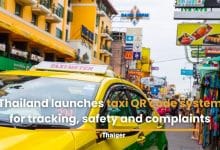Thailand’s focus on wealthy tourists won’t benefit small business

With the November 1 reopening, the government has not been looking to welcome back any and all travellers that want to come to Thailand. Instead, they’ve been narrowly focused on attracting the “right” tourists, attempting to lure wealthy investors and retirees to dump money into Thailand, while often brushing aside the moderate and budget tourists that have for years been the backbone of Thailand’s tourism industry.
The proposed long-term visa package is aimed directly at just 4 types of travellers:
- Wealthy international tourists with assets in multiple countries worth at least US $1 million who must invest at least US$500,000 (16.5 million baht) in government bonds.
- Wealthy pensioners over 50, who’ll need a big enough pension fund to cover their living costs in Thailand and who must invest at least US$250,000 in government bonds.
- Digital nomads or employees of high-value foreign companies who want to work remotely from Thailand.
- Highly-skilled professionals coming to work as experts in selected industries.
Minister of Energy Supattanapong Punmeechaow even explicitly stated that instead of trying to attract 40 million travellers like the pre-Covid-19 tourism numbers, they aim to draw just 1 million big spenders who they believe will generate the same revenue. In 2019, 11.4% of the GDP was from tourism, about 2 trillion baht, meaning the new government plan expects each of these high-roller tourists to spend about 2 million baht on their holiday or living time in Thailand.
But many business owners are frustrated and angry at being abandoned by the government’s lofty scheme, where luxury and wealthy businesses could flourish, but all businesses that cater to mid-range and budget travellers will see virtually no income. A focus on high-end tourists will bring money to chains and wealthy properties, but will do little, if anything, to stimulate the economy for the average Thai person or business.
Bali recently announced similar intentions of banning backpackers as they reopen in an attempt at a tourism makeover to attract higher-spending tourists. Moves like this in Indonesia and Thailand may be setting up a tourism boom for countries like Cambodia, where the population is nearing 80% vaccination rate, far more than Thailand’s 38%, who could potentially welcome with open arms the millions of backpackers and budget travellers that have been the bread and butter of Southeast Asian tourism for years.
Still, many governments are looking at the Covid-19 pandemic as a reset button, a chance to start over and reshape their image and reputation like a kid’s first day at a new school in a new town. But with countries worldwide reopening, and a lot of negative opinions on the complicated reentry procedure for tourists to get into Thailand, now may not be the time for beggers to be choosers.
Many point out that the idea that a smaller number but higher quality of tourists will benefit the environment, like the Energy Minister implied, wealthy tourists do much more damage to the environment with luxury accommodations and transportation eating far more water and resources than backpackers sharing buses and dorms.
High-end tourists enjoying cocktails and meals at their resort also put much less money into local economies, whereas budget travellers tend to shop in local markets and dine in local restaurants, contributing directly to small and medium enterprises who have suffered most from the Covid-19 pandemic.
Many in the tourism industry are eagerly anticipating the regrowth of the international tourism industry, but wish the government would stop focusing on wealthy travellers that don’t necessarily benefit the local economy and start focusing on casting a wide net to attract the most number of tourists of all demographics.
SOURCE: Straits Times
Latest Thailand News
Follow The Thaiger on Google News:


























